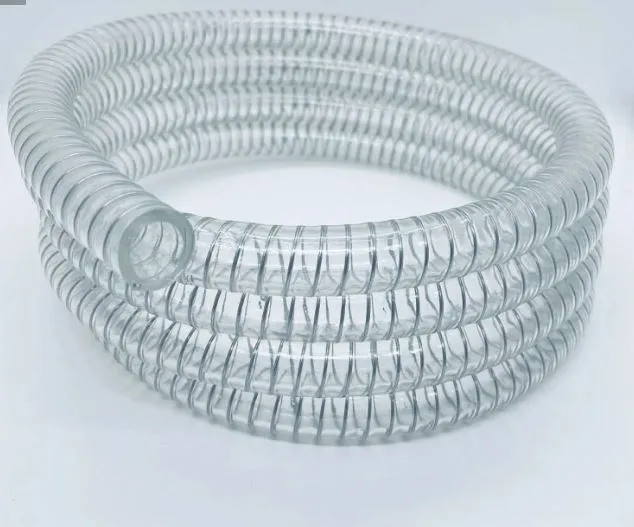lay flat irrigation hose
The Benefits and Applications of Lay Flat Irrigation Hose
Lay flat irrigation hoses have become a popular choice among farmers and landscapers seeking efficient and effective methods of watering crops and gardens. Unlike traditional irrigation methods, lay flat hoses are designed to ease the process of water distribution, providing numerous advantages that make them an increasingly favored option in agricultural and horticultural practices.
Understanding Lay Flat Irrigation Hose
Lay flat irrigation hoses are characterized by their unique design, which enables them to be easily laid out flat on the ground during irrigation. They are typically made of durable materials such as PVC or rubber, which are resistant to abrasions and UV rays, ensuring longevity even when exposed to harsh weather conditions. This type of hose comes in various sizes and diameters, making it versatile enough to cater to different irrigation needs.
Advantages of Lay Flat Hoses
One of the primary benefits of lay flat irrigation hoses is their easy handling and storage. When not in use, they can be rolled up and stored compactly, which saves space and makes transportation simple. This feature is especially significant for farmers operating in remote areas where equipment transportation can be a challenge.
Additionally, lay flat hoses provide an efficient means of water distribution. They can be connected to a water source, such as a pump or a tank, and laid across the field or garden. Their ability to cover a wide area ensures that crops receive adequate moisture, which is critical for growth and yields. Proper hydration helps to minimize crop stress and enhances overall plant health, ultimately contributing to better harvests.
lay flat irrigation hose

Another advantage is the uniform distribution of water. Lay flat hoses can be equipped with various types of emitters, enabling controlled and consistent watering. This targeted approach reduces water waste, ultimately leading to economic benefits for farmers who are often operating on tight budgets. It is a sustainable choice, aligning with modern agricultural practices that emphasize efficiency and conservation.
Applications in Agriculture and Beyond
The applications of lay flat irrigation hoses extend beyond traditional farming. They are also widely used in landscaping, nursery operations, and sports field maintenance. Homeowners are increasingly adopting these hoses for their gardens, particularly for vegetable plots and flower beds, where they can effortlessly set up a drip irrigation system tailored to their plants' specific water requirements.
Moreover, lay flat hoses can serve in situations beyond agriculture, such as in emergency water distribution during droughts or floods. Their lightweight and flexible nature allows for rapid deployment, making them essential during disaster relief efforts. They can transport water to areas cut off from traditional sources, showcasing their versatility and the vital role they play in various sectors.
Conclusion
In summary, lay flat irrigation hoses offer numerous benefits, including ease of use, efficient water distribution, and space-saving storage. Their applications are vast, serving farmers, landscapers, and homeowners alike. As the agriculture industry continues to seek sustainable and cost-effective methods of irrigation, lay flat hoses may become an even more integral part of modern water management strategies. Investing in this technology not only promotes healthier crops but also contributes to the overall stewardship of our water resources, ensuring that agriculture remains productive and sustainable for generations to come.
-
Welded Wire Mesh Panel: Durable, Versatile, and AffordableNewsJul.28,2025
-
Top Quality Oxy Acetylene Hoses for Sale Fit for Welding DemandsNewsJul.28,2025
-
The Future of Pneumatic Air Tubes in IndustryNewsJul.28,2025
-
Superior and Reliable LPG Hose Pipe Solutions for Every NeedNewsJul.28,2025
-
Exceptionally Durable and Versatile Premium Braided PVC TubingNewsJul.28,2025
-
Best Adapters for Connecting Garden Hose to PVC Pipe ConnectionsNewsJul.28,2025














